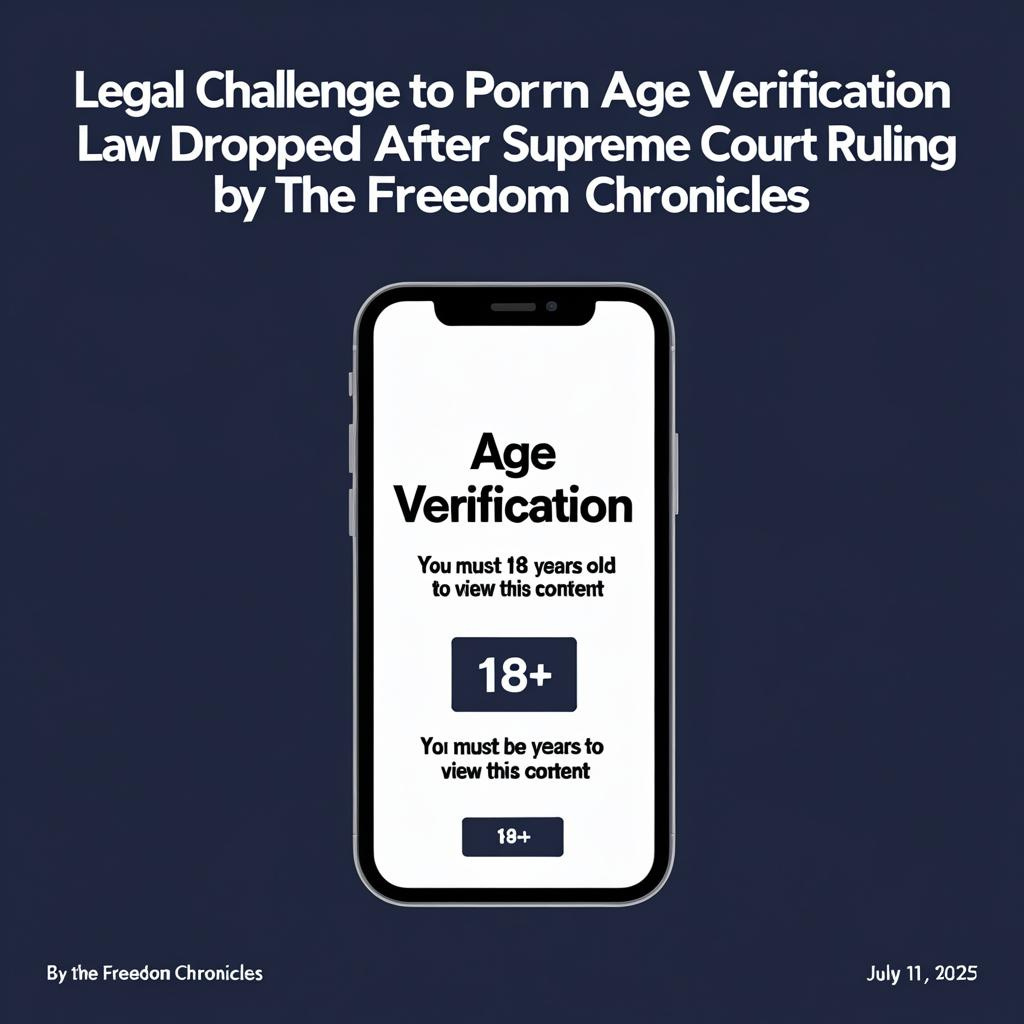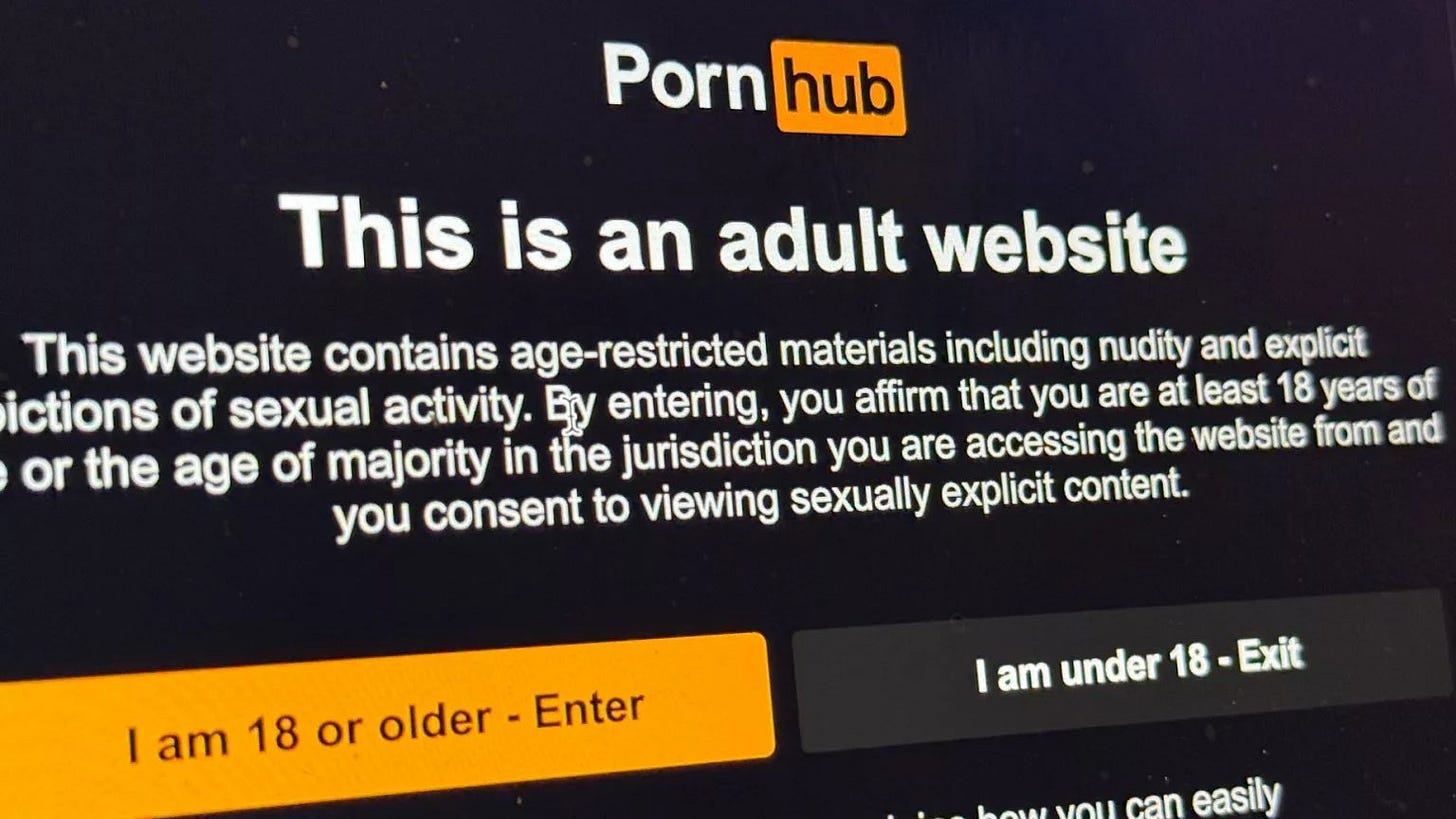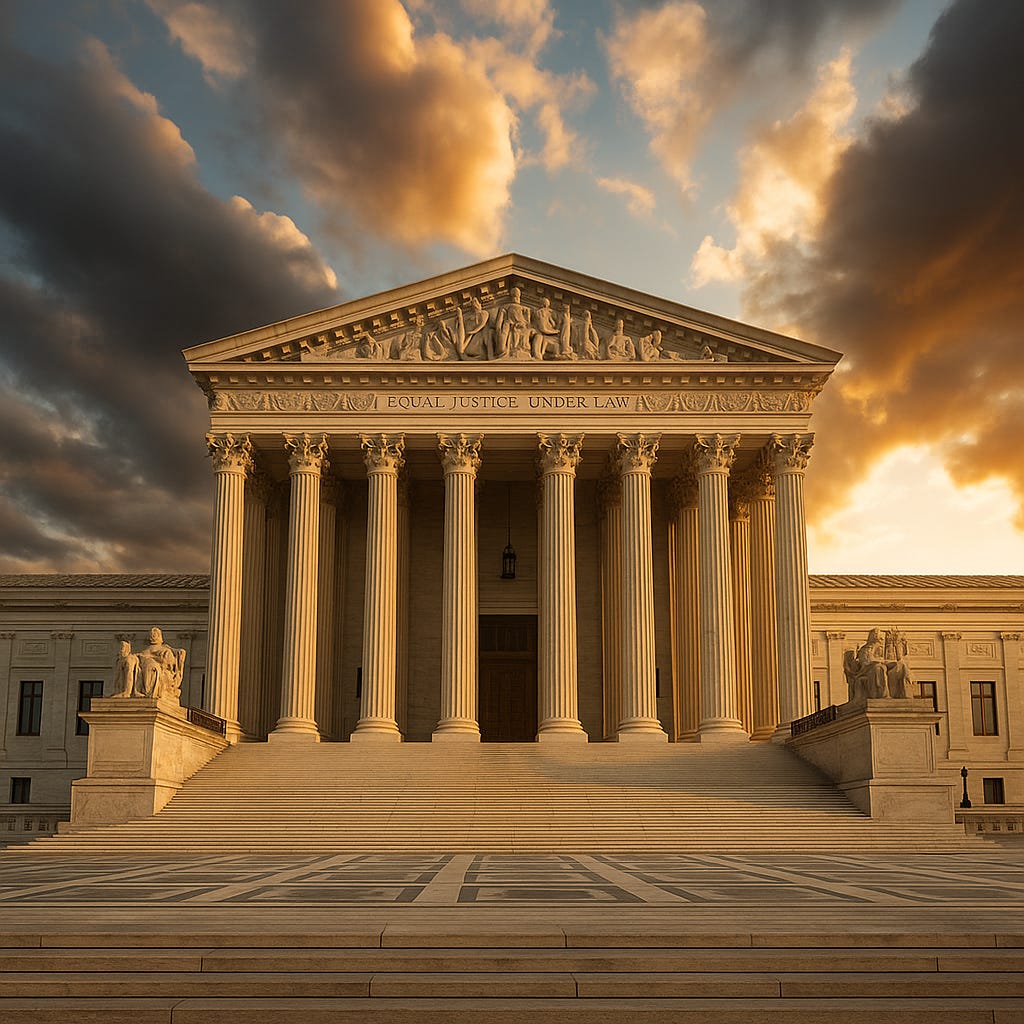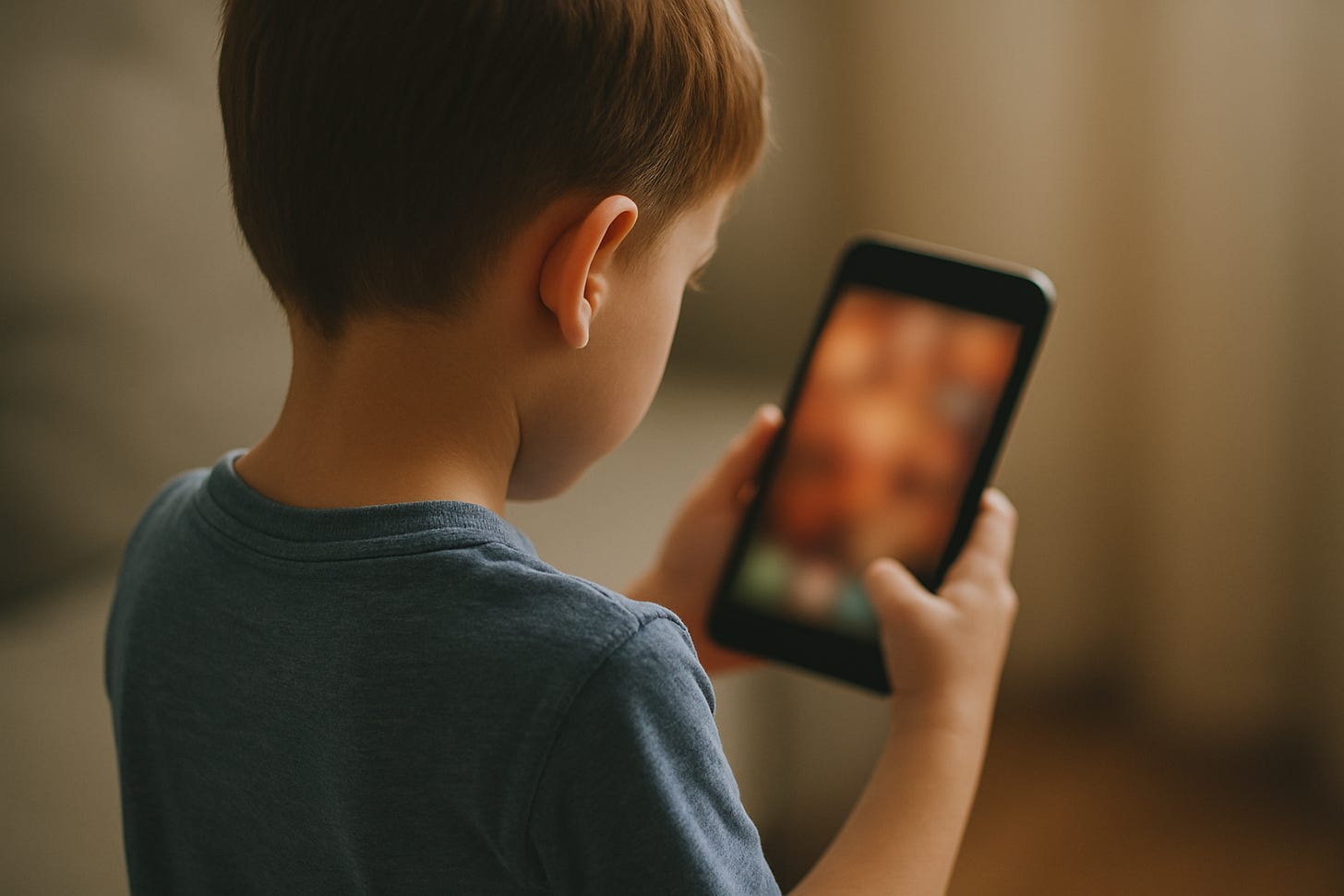Florida Stands Firm: Legal Challenge to Porn Age Verification Law Dropped After Supreme Court Ruling
Faith & Freedom Dispatch | Citizens Defending Culture, Kids, and Common Sense
A quiet but significant legal victory just unfolded in Florida’s ongoing battle to protect children online.
This week, the lawsuit challenging Florida’s law requiring age verification for access to pornographic websites was voluntarily dismissed by the plaintiffs — a move made one day before U.S. District Judge Mark Walker formally closed the case on July 9. The dismissal marks a pivotal win for parental rights advocates and child safety proponents alike.
📜 Background: What the Law Requires
In 2024, Governor Ron DeSantis signed HB 3, a landmark bill that mandates adult websites to verify users are 18 years or older if more than 33.3% of their content is deemed harmful to minors. This "substantial portion" standard has become a benchmark for protecting children online — one that has already led Pornhub to block access to its platform in Florida.
The Free Speech Coalition, representing the adult entertainment industry, filed suit in December 2024, claiming the law violated the First Amendment by placing a “content-based burden on protected speech.”
That argument unraveled following a defining moment in late June: the U.S. Supreme Court upheld a similar law out of Texas, affirming that age-verification laws are within a state’s right to protect children from explicit content.
Justice Clarence Thomas, writing for the majority, made it clear:
“No person has a First Amendment right to access speech that is obscene to minors without proof of age.”
This opinion dealt a devastating blow to the adult industry’s legal position — and the Free Speech Coalition quickly folded its hand.
⚖️ Case Closed — For Now
The Florida lawsuit was dismissed without prejudice, meaning the plaintiffs could theoretically refile. But given the clarity of the Supreme Court's decision, legal experts agree: the road ahead for the porn industry is legally blocked.
In a statement after the Texas ruling, the Free Speech Coalition admitted the Supreme Court’s opinion would have “significant implications” for age-verification fights across the country and that their legal team was “evaluating the decision.”
The evaluation didn't take long — they dropped the case within days.
👏 Florida Officials Applaud the Win
Education Commissioner Stasi Kamoutsas called it “another major legal victory for Florida,” thanking Attorney General James Uthmeier for his continued leadership.
Uthmeier responded forcefully, saying:
“Pornography companies do not have a legal right to expose children to explicit sexual content. Florida law will continue to protect our kids.”
🔍 Not Over Yet: Social Media Lawsuit Still Pending
While the age verification requirement for pornography sites stands unchallenged, another provision of HB 3 remains in legal limbo.
That provision seeks to block children under 16 from opening social media accounts on certain platforms. Judge Walker previously issued a preliminary injunction on First Amendment grounds, and the state has appealed to the 11th U.S. Circuit Court of Appeals. That battle is still ongoing — but with the recent Supreme Court guidance, the state may find more legal support than previously anticipated.
💬 Why It Matters
Critics often argue that laws like HB 3 are a form of censorship. But let’s be clear: this is about access control, not banning content. Adults still have full legal access — but children should not be collateral damage in the digital wild west.
This ruling affirms what many of us have long advocated for: a public policy that puts the innocence and development of children ahead of profit-driven platforms that thrive on unrestricted exposure.
✝️ A Moral Victory, Too
For pastors, parents, and principled citizens across Florida, this isn’t just a courtroom win — it’s a spiritual victory.
Every day, children carry the internet in their hands. The law can’t replace parenting, but it can build strong fences around dangerous digital cliffs.
Florida just proved that it has the will — and now, thanks to the Supreme Court, the constitutional backing — to draw those lines boldly.
🔔 Stay Engaged
This is a victory, but vigilance is still needed. Here’s how to make a difference:
Talk to your kids about digital purity and online accountability.
Support lawmakers who stand for family values.
Pray for the courts and leaders defending truth.
Subscribe to this newsletter for ongoing updates on faith, policy, and cultural issues.
Together, let’s be the generation that says enough — and defends the next generation with clarity and courage.
✉️ If this article speaks to your heart, share it widely. Forward it to your pastor, your school board, and your state rep. Let’s bring light into the online darkness.
ProtectTheInnocent
#FloridaFaith
#AgeVerificationVictory
#HB3
Robert is the Florida Faith Director for Citizens Defending Freedom. He writes at the intersection of faith, law, and public life.









